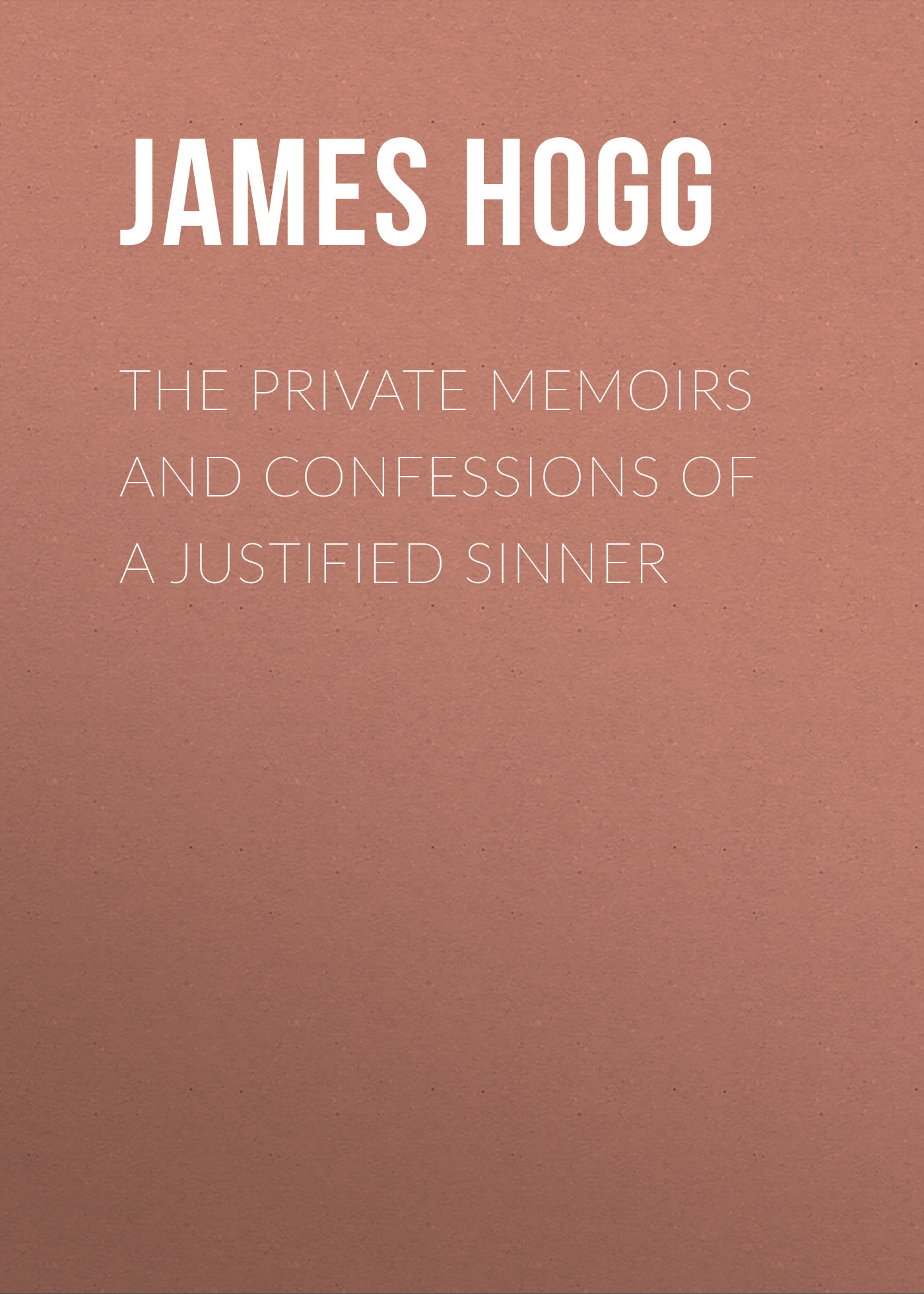Электронная книга: James Hogg «The Private Memoirs and Confessions of a Justified Sinner»

|
Издательство: "Public Domain"
электронная книга Скачать бесплатно на Litres |
Другие книги автора:
| Книга | Описание | Год | Цена | Тип книги |
|---|---|---|---|---|
| The poetical works. Vol. 2 | Полный вариант заголовка: «The poetical works of James Hogg : Vol. 2 : in 4 volumes» — Библиотечный фонд, электронная книга Подробнее... | электронная книга | ||
| The poetical works. Vol. 3 | Полный вариант заголовка: «The poetical works of James Hogg : Vol. 3 : in 4 volumes» — Библиотечный фонд, электронная книга Подробнее... | электронная книга | ||
| The poetical works. Vol. 4 | Полный вариант заголовка: «The poetical works of James Hogg : Vol. 4 : in 4 volumes» — Библиотечный фонд, электронная книга Подробнее... | электронная книга | ||
| The poetical works. Vol. 1 | Полный вариант заголовка: «The poetical works of James Hogg : Vol. 1 : in 4 volumes» — Библиотечный фонд, электронная книга Подробнее... | электронная книга |
James Hogg
James Hogg (1770 -
Biography
Hogg was born in a farm near Ettrick Forest in Selkirk and
In 1801, Hogg visited
It was through Blackwood's that Hogg found fame, although it was not the sort that he wanted. Launched as a counter-blast to the Whig "
The Shepherd of the Noctes is an extraordinary creation, part-animal, part-rural simpleton, part-savant, easily the most memorable character in the series, who speaks some of the richest and saltiest Scots ever written. He became one of the best-known figures in topical literary affairs, famous throughout Britain and its colonies. Quite what the real James Hogg made of this is mostly unknown, although some of his letters to Blackwood and others express outrage and anguish. What is known is that in 1824, no longer highly regarded in Edinburgh, largely excluded from "Blackwood's", now in his fifties but with a young family, and writing desperately quickly for money to try to save his failing farm, Hogg wrote his famous tale of persecution, delusion, devilish mimickry and tortured consciousness: "
It did not do well. Barely reviewed in "Blackwood's", it became a forgotten book until over a century later when the French writer,
The bulk of Hogg's writing was bowdlerised in the 19th century and neglected for most of the 20th. Apart from "The Confessions", which even his detractors acknowledged as unusually powerful (and often attributed to someone else, usually Lockhart), his novels were regarded as turgid, his verse as light, his short tales and articles as ephemera. But growing interest in "The Confessions" led to the rediscovery and reconsideration of his other work in the late 20th and early 21st centuries. Now his novel "The Three Perils of Woman" is also considered a classic and all his work, including his letters, is undergoing major publication in the Stirling/Carolina editions. However, "Justified Sinner" remains his most important work and is now seen as one of the major Scottish novels of its time, and absolutely crucial in terms of exploring one of the key themes of Scottish culture and identity:
Other works
*"The Forest Minstrel" (1810) (poetry) Footnotes References *"The Electric Shepherd: A Likeness of James Hogg" (2004) External links * Источник: James Hogg
*"The Pilgrims of the Sun" (1815) (poetry)
*"Brownie of Bodsbeck" (1817) (novel)
*"
*"The Three Perils of Man" (1822) (novel)
*"The Three Perils of Woman" (1823) (novel)
*"Queen Hynde" (1825) (poetry)
*"Songs by the Ettrick Shephard" (1831) (songs/poetry)
*"The Brownie of the Black Haggs" (1828) (short story/tale)
*"The Domestic Manner and Private Life of Sir Walter Scott" (1834) ("unauthorised" biography)
*"Tales and Sketches of the Ettrick Shepherd" (1837)Bibliographic information from:cite book | last=Bleiler | first=Everett | authorlink=Everett F. Bleiler | title=The Checklist of Fantastic Literature | location=Chicago | publisher=Shasta Publishers | pages=110 | date=1948]
* [http://www.bbc.co.uk/scotland/arts/writingscotland/writers/james_hogg/ BBC - Writing Scotland - James Hogg]
См. также в других словарях:
The Private Memoirs and Confessions of a Justified Sinner — Brocken spectre with a glory, an atmospheric effect of light which has powerful instrumental effect in one of the scenes from the novel Confessions of a Justified Sinner. The Private Memoirs and Confessions of a Justified Sinner, (Full title, The … Wikipedia
Strange Case of Dr Jekyll and Mr Hyde — Dr. Jekyll and Mr. Hyde redirects here. For other uses, see Dr. Jekyll and Mr. Hyde (disambiguation). Strange Case of Dr Jekyll and Mr Hyde … Wikipedia
West Port, Edinburgh — (The) West Port is a street in Edinburgh s Old Town, Scotland, located just south of the Edinburgh Castle. It runs from Main Point (the junction of Bread Street, Lauriston Street, East Fountainbridge and High Riggs) down to the south west corner… … Wikipedia
Devil in popular culture — The Devil appears frequently as a character in works of literature and popular culture. In Christian tradition the figure of the Devil or Satan, personifies evil. Today the Devil remains a common figure in popular culture.[1] Contents 1… … Wikipedia
1824 in literature — The year 1824 in literature involved some significant events and new books.Events* Julia Beckwith Hart becomes the first Canadian female writer to be published.New books*Mary Charlton The Homicide *Lydia Maria Child Hobomok *James Fenimore Cooper … Wikipedia
James Hogg — Pour les articles homonymes, voir Hogg. James Hogg James Hogg, né en 1770, mort le 21 novembre 1835, est un poète et romancier … Wikipédia en Français
